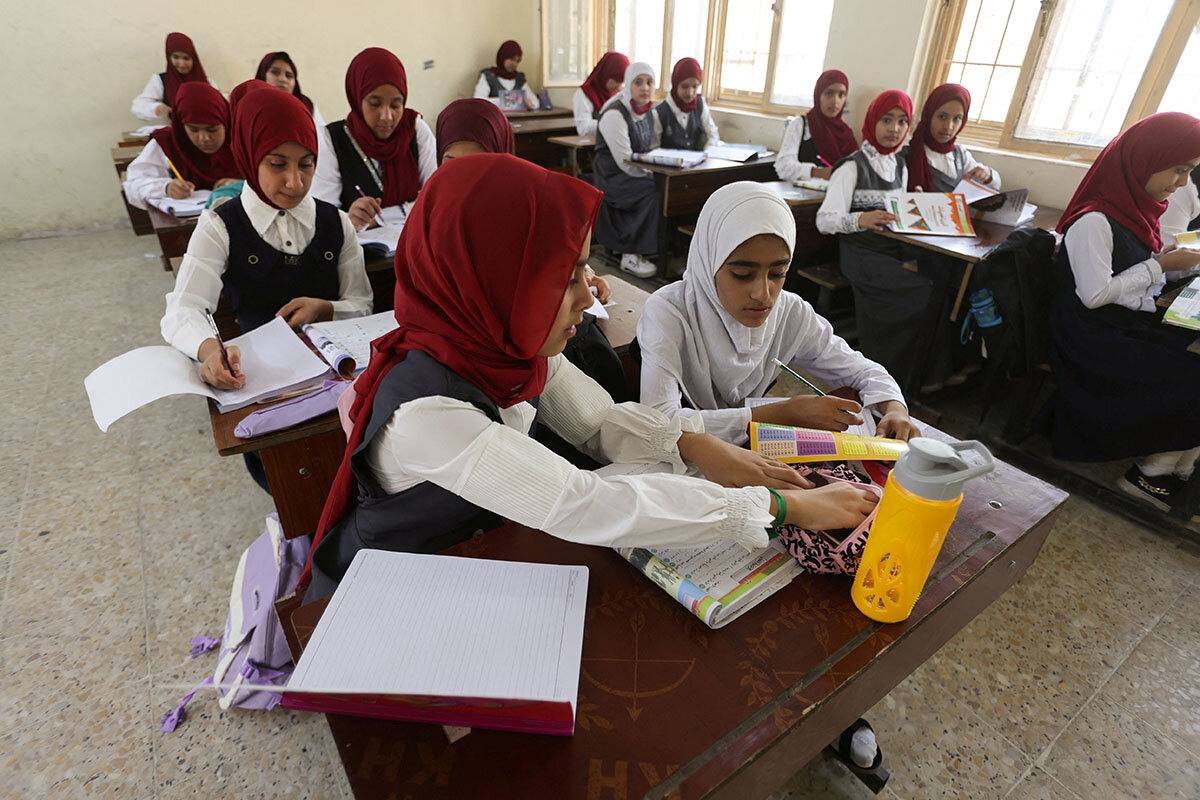There’s an element of political theater to the budget showdown that almost caused a government shutdown in the United States over the weekend. But behind the unfinished drama are difficult challenges of debt and deficits.
Monitor Daily Podcast
- Follow us:
- Apple Podcasts
- Spotify
- RSS Feed
- Download
 Peter Grier
Peter Grier
Former President Donald Trump did something unusual for him on Monday: He attended the beginning of one of his own trials.
The civil case, brought by the New York state attorney general, accuses Mr. Trump of greatly exaggerating his net worth to get better terms on bank loans.
Unlike the criminal trials the former president will face next year, this trial does not bring the threat of a prison sentence. Rather, at stake here is money – possibly large sums.
On Monday, his lawyers argued that Mr. Trump’s actions cited in the suit constituted typical real estate practice.
“There is no crime. The crime is against me,” Mr. Trump told reporters outside the courtroom.
The judge overseeing the case, Arthur Engoron, has already ruled that Mr. Trump and his business organization committed fraud on a broad scale. Trump businesses claimed that the former president’s Trump Tower residence was 30,000 square feet, almost triple its actual size, according to Judge Engoron. They listed rent-stabilized apartments at market rates and inflated the price of Trump golf club memberships.
Reportedly, Mr. Trump’s lawyers did not request a jury trial, meaning the ruling is in Mr. Engoron’s hands. The trial beginning this week will set penalties. If the judge’s ruling withstands appeals, Mr. Trump could lose control over many of his signature New York properties, and he may have to pay a fine of upward of $250 million.
It’s unclear what political effect a ruling might have in today’s polarized landscape. But the trial represents a challenge to a core part of the former president’s identity: his brand as a successful real estate tycoon.










